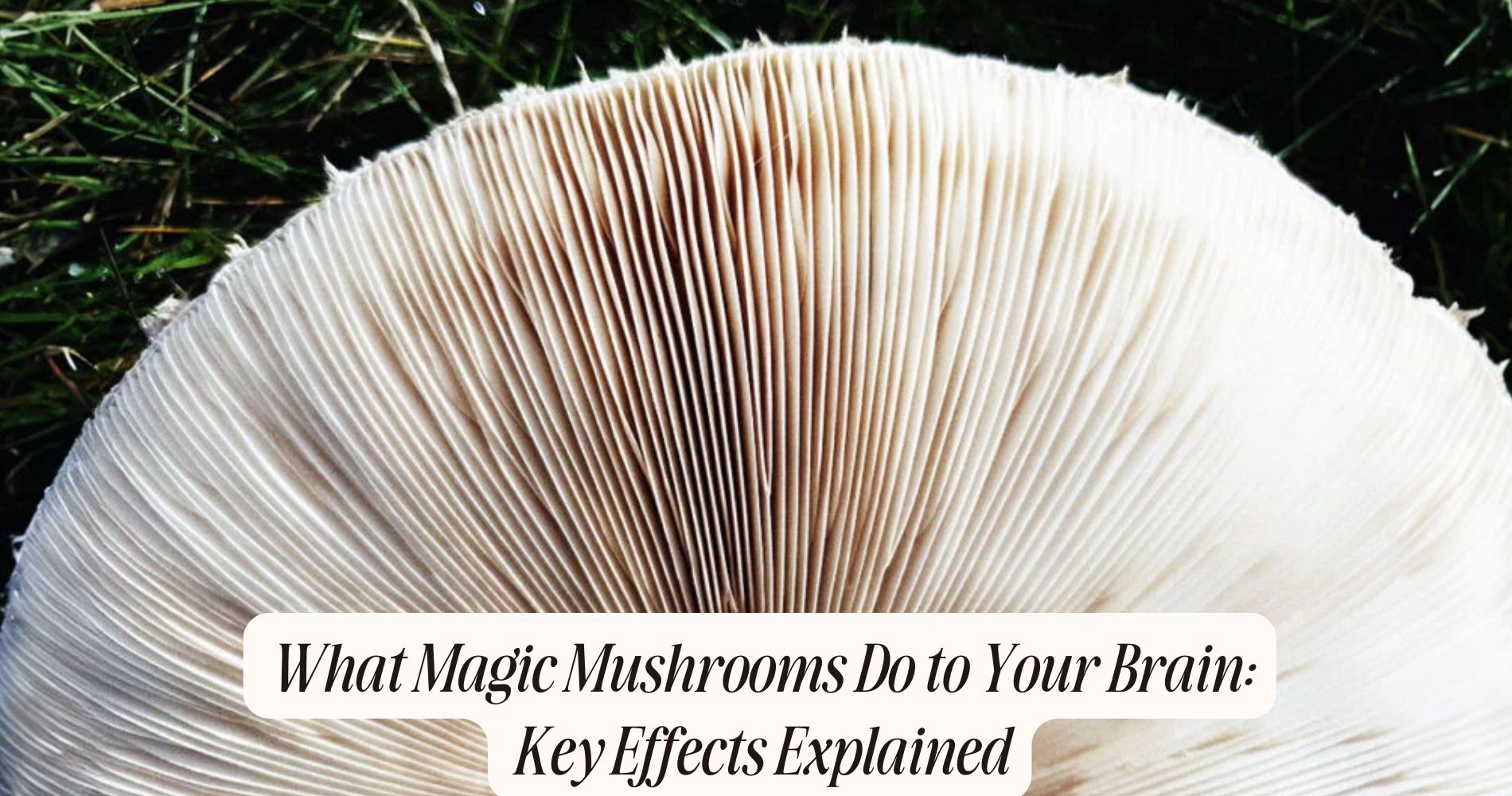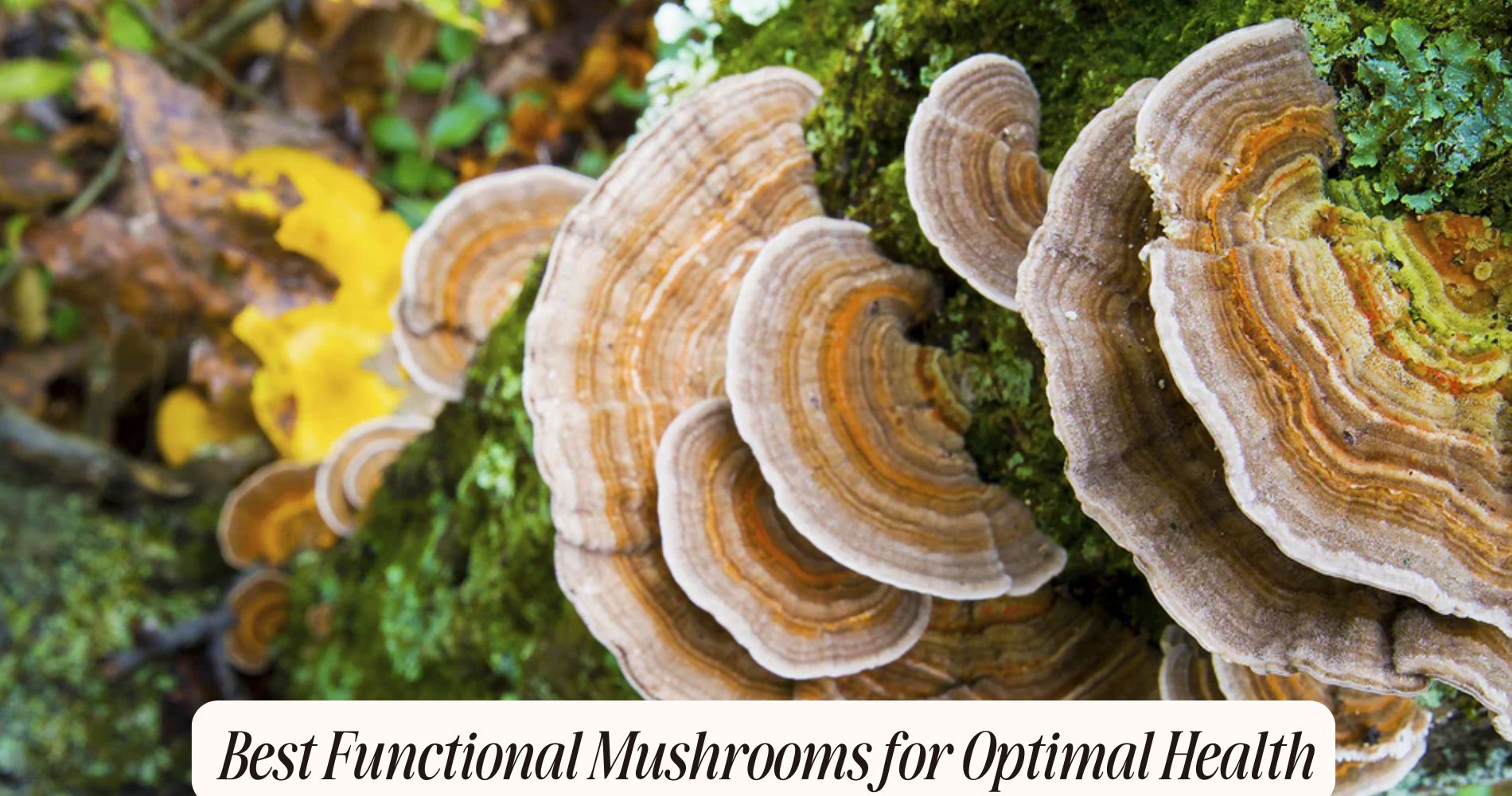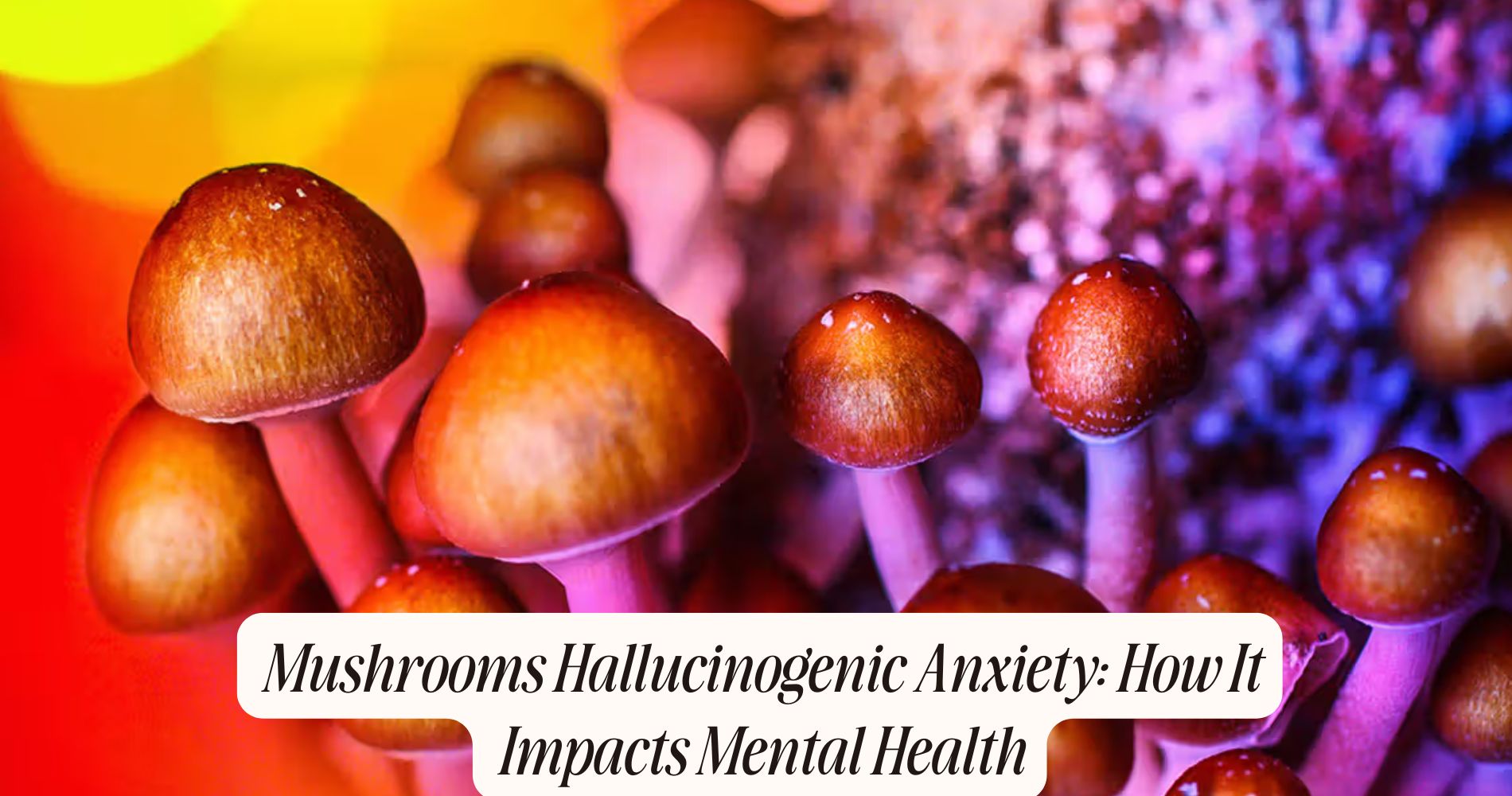
What Magic Mushrooms Do to Your Brain: Key Effects Explained
What magic mushrooms do to your brain? Magic mushrooms, primarily due to psilocybin, considerably impact your brain's chemistry and function. This compound engages serotonin receptors, fundamentally altering your mood, perception, and cognition. You'll notice enhanced emotional resilience and creativity, as psilocybin promotes new neural connections. Expect profound shifts in sensory experiences and time perception too. It shows promise for treating conditions like depression and PTSD, making it a focal point of modern therapeutic research. However, awareness of potential risks and legal implications is essential. Understanding these effects can lead you to intriguing insights about psilocybin's broader implications for mental health.
Overview of Psilocybin
Psilocybin, the psychoactive compound found in certain species of mushrooms, has garnered significant attention for its potential therapeutic effects on the brain. Historically, indigenous cultures have utilized psilocybin mushrooms in spiritual and healing rituals for centuries. Evidence suggests that these mushrooms played a vital role in the cultural practices of Mesoamerican societies, where they were employed as sacraments to facilitate communication with the divine and promote personal insight.
In contemporary settings, researchers are revisiting the historical usage of psilocybin, examining its effects on mental health conditions such as depression, anxiety, and PTSD. The cultural significance of these mushrooms extends beyond mere recreation; they represent a bridge between ancient wisdom and modern science.
By studying psilocybin's effects, you're engaging with a rich tapestry of human experience that spans millennia. As you explore psilocybin, consider its role in both historical and modern contexts. Understanding its cultural significance can enhance your comprehension of its potential benefits and risks.
This journey into psilocybin not only illuminates its pharmacological properties but also underscores the importance of context in evaluating its therapeutic applications.
How Psilocybin Affects Neurotransmitters
When you consume psilocybin, it primarily activates serotonin receptors in your brain, greatly influencing your mood and perception.
This receptor activation not only enhances neuroplasticity, allowing your brain to form new connections, but also plays an essential role in mood regulation.
Understanding these effects can shed light on the therapeutic potential of psilocybin in treating various mental health conditions.
Serotonin Receptor Activation
Activating serotonin receptors, psilocybin significantly alters neurotransmitter dynamics in the brain. It primarily targets the 5-HT2A receptor subtype, which plays an essential role in modulating mood, perception, and cognition. By binding to these receptors, psilocybin mimics serotonin, leading to profound changes in serotonin dynamics that can enhance emotional experiences and alter sensory perception.
Research indicates that this activation can lead to increased connectivity between various brain regions, fostering a unique state of consciousness. The effects of psilocybin aren't uniform, as different receptor subtypes, including 5-HT1A and 5-HT2C, also contribute to its overall impact. These subtypes influence various physiological processes and emotional responses, providing a nuanced understanding of how psilocybin shapes your mental state.

Moreover, the interplay between these receptor subtypes suggests that psilocybin's effects might be more complex than initially believed. Alterations in serotonin dynamics can affect anxiety, depression, and even creativity.
Enhanced Neuroplasticity Effects
The activation of serotonin receptors by psilocybin not only alters mood and perception but also enhances neuroplasticity, the brain's ability to reorganize itself by forming new neural connections.
Research suggests that psilocybin stimulates neurogenesis mechanisms, promoting the growth of new neurons in the hippocampus, a region critical for learning and memory. This increase in neurogenesis contributes to improved cognitive flexibility, allowing you to adapt your thinking and behavior in response to changing circumstances.
By enhancing neuroplasticity, psilocybin appears to facilitate the brain's capacity to remodel itself, potentially leading to lasting changes in how you process information and respond to experiences.
Studies indicate that the influence of psilocybin on the serotonin system may extend beyond immediate effects, fostering an environment conducive to long-term cognitive benefits. This could help you break free from maladaptive thought patterns, encouraging more adaptive ways of thinking.
Mood Regulation Impact
Exploring how psilocybin impacts mood regulation reveals significant interactions with neurotransmitter systems, particularly serotonin. This psychedelic compound primarily affects the serotonin receptor 5-HT2A, which plays a vital role in mood regulation.
When you consume psilocybin, it enhances serotonin signaling, leading to altered mood states and emotional experiences.
Research indicates that psilocybin can reduce symptoms of mood disorders, such as depression and anxiety. By modulating serotonin levels, psilocybin promotes a sense of well-being and emotional resilience. You may find that your mood stabilizes, allowing for a more positive outlook on life.
Moreover, psilocybin's influence on brain connectivity further contributes to emotional regulation. It helps you reframe negative thought patterns, leading to healthier emotional responses.
This effect can be particularly beneficial for those grappling with mood disorders, as it fosters adaptive coping mechanisms.
Changes in Perception and Sensory Experience
When you consume magic mushrooms, your visual perception can become markedly enhanced, allowing you to experience colors and patterns with greater intensity.
Simultaneously, you may notice an altered sense of time, making moments feel elongated or compressed.
These changes stem from psilocybin's effects on brain connectivity and sensory processing, reshaping how you interpret your surroundings.
Enhanced Visual Perception
Many users of magic mushrooms report experiencing enhanced visual perception, which can greatly alter how they interpret their surroundings. This heightened state often involves intensified color perception, making hues appear more vivid and saturated. You might notice subtle shifts in light and shadow, leading to visual distortions that challenge your traditional understanding of depth perception.
These changes can create a sense of sensory overload, as your brain processes a flood of visual stimuli. During this experience, you may encounter visual hallucinations, where objects morph or shift in ways that defy reality. This can lead to an increased ability for pattern recognition, as your mind searches for order in the chaos.
Spatial awareness may also feel altered, as distances and dimensions seem to fluctuate, enhancing your interaction with the environment. Many users find that this altered state provides unique artistic inspiration, allowing for new creative insights.
These experiences can cultivate a deeper appreciation for aesthetics, prompting you to see the world through a lens that feels both extraordinary and profound. Understanding these effects can help you navigate the complex nature of visual perception while under the influence of magic mushrooms.
Altered Time Perception
During a trip, users of magic mushrooms often report a significant alteration in their perception of time, making moments stretch or compress in ways that feel disorienting. This phenomenon, known as time dilation, leads to experiences where minutes can feel like hours, or vice versa.

Researchers suggest that the psychoactive compound psilocybin interacts with serotonin receptors in the brain, particularly the 5-HT2A receptor, which plays an essential role in regulating sensory perception and temporal awareness.
As you navigate through this altered state, you might experience temporal distortion, where the usual markers of time seem unreliable. This disconnection from standard timekeeping can lead to profound introspection or heightened emotional experiences.
Some users describe feeling as if they're present in multiple moments simultaneously, enhancing the depth of their experience.
Neuroscientific studies indicate that these effects stem from disruptions in brain networks responsible for processing time and spatial awareness.
Emotional and Mood Alterations
Magic mushrooms have garnered attention for their profound emotional and mood-altering effects. When you consume psilocybin, the active compound in these mushrooms, you may experience notable changes in your emotional landscape.
Research indicates that these substances can enhance emotional resilience, helping you manage stress and anxiety more effectively. This resilience stems from psilocybin's ability to promote neuroplasticity, which fosters new connections in your brain and facilitates emotional processing.
In many cases, users report significant mood elevation during and after their experiences with magic mushrooms. This elevation can manifest as feelings of joy, connectedness, and heightened empathy.
Scientific studies support these claims, showing that psilocybin can decrease symptoms associated with depression and anxiety disorders. The experience may allow you to confront and understand underlying emotional issues, leading to a more profound sense of well-being.
As you navigate these emotional shifts, it's essential to approach the experience mindfully. The context and setting play a significant role in how you process these alterations.
Understanding that magic mushrooms can amplify your emotional state can help you harness their potential for improved mental health.
Enhanced Creativity and Problem-Solving
Psilocybin's effects extend beyond emotional and mood alterations, considerably enhancing creativity and problem-solving abilities. Research indicates that psilocybin promotes imaginative thinking by altering neural connectivity in the brain. When you consume psilocybin, it increases communication between different brain regions, fostering a more integrated thought process. This heightened connectivity allows you to approach problems from novel angles and generate unique solutions.
One significant aspect of this enhancement is cognitive flexibility, which refers to your ability to adapt your thinking and switch between different concepts. Psilocybin encourages cognitive flexibility by loosening rigid thought patterns, making it easier for you to explore alternative perspectives.

Studies demonstrate that individuals under the influence of psilocybin exhibit improved divergent thinking, a key element of creativity where multiple solutions to a problem are generated.
Moreover, as your brain's default mode network becomes less active, you may find it easier to break free from conventional thinking, revealing new creative pathways.
Impact on Memory and Learning
When exploring the impact of psilocybin on memory and learning, you'll find that it can greatly enhance these cognitive functions by promoting neuroplasticity—the brain's ability to reorganize itself by forming new neural connections. Research indicates that psilocybin can improve memory retention, allowing you to recall information more effectively. This is particularly relevant in educational settings, where improved recall can lead to better academic performance.
Additionally, psilocybin fosters cognitive flexibility, enabling you to adapt your thinking and approach problems from different perspectives. This flexibility is essential for effective learning, as it helps you connect new information with existing knowledge, facilitating deeper understanding.
Studies show that individuals who've experienced psilocybin often report increased openness to new experiences and ideas, which can further enhance learning outcomes.
Moreover, psilocybin's ability to reduce rigid thinking patterns allows you to engage with material in a more dynamic way, promoting innovative thought processes.
Therapeutic Potential for Mental Health
The cognitive enhancements provided by psilocybin extend beyond memory and learning, revealing significant therapeutic potential for mental health conditions. Clinical research indicates that psychedelic therapy can effectively address issues like depression, anxiety, and PTSD. In therapeutic settings, psilocybin promotes emotional resilience, allowing you to process traumatic experiences and develop healthier coping mechanisms.
Integrating psilocybin into mindfulness practices can further amplify its benefits. By fostering awareness and presence, these practices help you navigate your thoughts and feelings more effectively.
Integration support becomes essential post-therapy, as it facilitates the incorporation of insights gained during sessions into your daily life. This support not only aids in sustaining positive changes but also plays an important role in reducing stigma surrounding mental health interventions.
As the body of clinical research grows, the evidence supporting psilocybin's therapeutic potential strengthens. By embracing this innovative approach, you may find new pathways to healing, offering hope where traditional treatments have faltered.
Ultimately, psilocybin could redefine mental health care, providing transformative experiences that empower you to reclaim your well-being.
Risks and Considerations
While the therapeutic benefits of psilocybin are promising, it's important to take into account the potential risks and limitations associated with its use.
First, legal implications can vary greatly depending on your location, which may affect accessibility and safety. When considering dosage, it's important to adhere to recommended amounts, as individual variability can lead to different experiences, including heightened anxiety or paranoia.
Safety precautions should be taken seriously, especially for individuals with contraindications such as a history of psychosis or certain medical conditions.

Potential dependencies, while less common than with other substances, can occur, highlighting the need for careful monitoring. Long-term effects of psilocybin remain under-researched, necessitating caution in its use.
Moreover, societal stigma and cultural perceptions surrounding magic mushrooms can influence your experience, potentially leading to feelings of isolation or shame.
Finally, understanding possible withdrawal symptoms is crucial, even if they're generally mild.
Enhance Your Brainpower with SUPER MUSHROOM GUMMIES
Looking for a simple way to fuel your brain and energize your body? Well Gummies’ SUPER MUSHROOM GUMMIES are the perfect solution! These convenient, chewable gummies contain a powerful blend of 10 functional mushrooms to help you achieve sharper focus, calm energy, and immune support. The best part? They taste like fresh wild berries, as delicious as your favorite candy—with no jitters or crash. Try them today for a balanced body and clear mind that shines all day long!
Frequently Asked Questions
Are Magic Mushrooms Addictive or Habit-Forming?
Magic mushrooms aren't considered addictive or habit-forming, but you might develop tolerance over time. While they can lead to psychological dependence in some, most users don't experience cravings or compulsive use associated with addiction.
How Long Do the Effects of Magic Mushrooms Last?
The effects of magic mushrooms typically last four to six hours, but duration factors like dosage and individual tolerance can create experience variations. Understanding these elements can help you anticipate what to expect during your trip.
Can Magic Mushrooms Cause Long-Term Brain Changes?
Yes, magic mushrooms can induce long-term brain changes through their neuroplasticity effects. By enhancing serotonin interactions, they may promote new neural connections, potentially influencing mood, perception, and overall cognitive flexibility in users over time.
What Are the Legal Status and Restrictions on Magic Mushrooms?
The legal status of magic mushrooms varies widely, reflecting cultural attitudes and legal implications. In some regions, they're decriminalized or legal for therapeutic use, while others enforce strict prohibitions, considerably affecting accessibility and research opportunities.
How Do Individual Factors Affect Psilocybin Experiences?
Individual factors like set and setting, along with your personal history, notably shape psilocybin experiences. Your mindset, environment, and past experiences can enhance or hinder the effects, leading to vastly different journeys and insights.
Conclusion
In conclusion, psilocybin notably alters brain function by affecting neurotransmitter systems, leading to profound changes in perception, mood, and creativity. While its therapeutic potential for mental health is promising, especially in treating conditions like depression and anxiety, it's essential to take into account the associated risks. Understanding these effects can help you make informed decisions about the use of magic mushrooms, balancing the allure of their benefits with the need for caution and responsible use.




